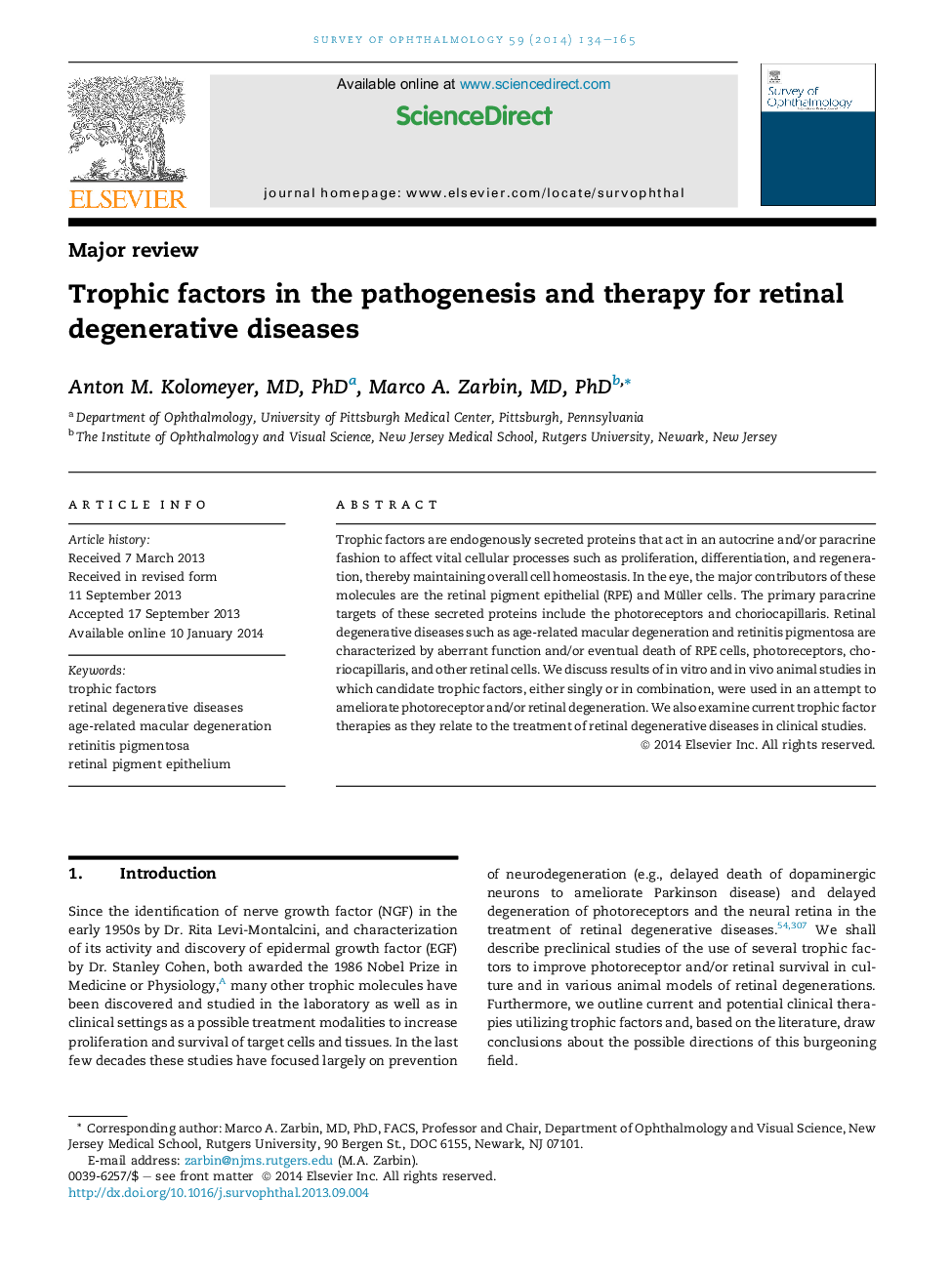| Article ID | Journal | Published Year | Pages | File Type |
|---|---|---|---|---|
| 4032527 | Survey of Ophthalmology | 2014 | 32 Pages |
Trophic factors are endogenously secreted proteins that act in an autocrine and/or paracrine fashion to affect vital cellular processes such as proliferation, differentiation, and regeneration, thereby maintaining overall cell homeostasis. In the eye, the major contributors of these molecules are the retinal pigment epithelial (RPE) and Müller cells. The primary paracrine targets of these secreted proteins include the photoreceptors and choriocapillaris. Retinal degenerative diseases such as age-related macular degeneration and retinitis pigmentosa are characterized by aberrant function and/or eventual death of RPE cells, photoreceptors, choriocapillaris, and other retinal cells. We discuss results of in vitro and in vivo animal studies in which candidate trophic factors, either singly or in combination, were used in an attempt to ameliorate photoreceptor and/or retinal degeneration. We also examine current trophic factor therapies as they relate to the treatment of retinal degenerative diseases in clinical studies.
